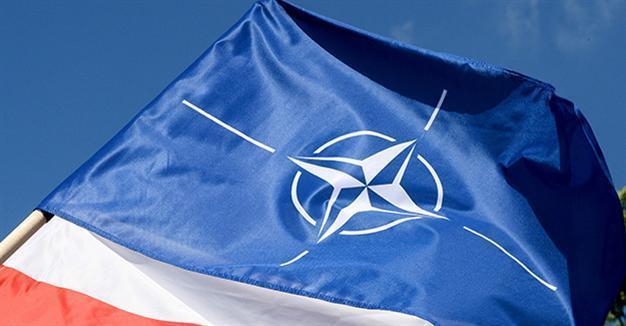NATO leaders meet to talk on Russia, terrorism
WARSAW
 Leaders of NATO will meet in Warsaw on July 8-9 to tackle a number of the problems that affect NATO, particularly the growing threat to the alliance along its eastern border – Russia – and terrorism.
Leaders of NATO will meet in Warsaw on July 8-9 to tackle a number of the problems that affect NATO, particularly the growing threat to the alliance along its eastern border – Russia – and terrorism. NATO leaders and many partner nations will also look to enhance the alliance’s security by strengthening its deterrence and defense, and projecting stability beyond its borders.
Leaders are also expected to cement a new deterrent against what they see as an emboldened Russia returning to Cold War-style defense.
Russia says it is the alliance, not Moscow, that is increasing the risks of a broader conflict in Europe, citing NATO’s biggest modernization since the Cold War and a U.S. missile defense shield.
NATO Secretary-General Jens Stoltenberg said the alliance had reached a “defining moment for our security” and will meet the challenge head-on at its summit this week.
“The world is a more dangerous place than just a few years ago,” Stoltenberg said recently in Warsaw along with Polish President Andrzej Duda. “NATO is responding, with speed and with determination.”
“Tomorrow and Saturday we will take new, major steps” to ensure NATO member nations’ security and help foster stability in the Middle East and North Africa, Stoltenberg said.
“It is fitting that we meet in Warsaw, a city that knows the pain of conflict and the value of security,” added Stoltenberg in a reference to Poland’s tumultuous history.
Stoltenberg said NATO would hold fresh talks with Russia on July 13, just days after the Warsaw summit endorses a major military revamp to counter a more assertive Moscow.
“We have decided together with Russia to hold a meeting of the NATO-Russia Council [NRC]... the meeting will take place on 13 July at the NATO headquarters in Brussels, shortly after the NATO summit in Warsaw,” Stoltenberg said.
The NRC brings together ambassadors from the 28 NATO member states and Russia, and met regularly until the Ukraine crisis plunged relations with Moscow into the deep freeze.
Russia’s ambassador to NATO, Alexander Grushko, told AFP: “The main focus will be on the military security in the wake of decisions to be taken at the NATO summit in Warsaw.”
“We hope for a frank and serious dialogue on the issues related to the increased NATO activities near Russian borders and their impact on the security and stability in Europe and its regions,” he said.
According to a statement released on NATO’s website on July 7, the allies will agree to deploy four robust and multinational battalions to Estonia, Latvia, Lithuania and Poland on a rotational basis.
A multinational framework brigade in Romania will provide a tailored presence in southeastern Europe and NATO will also take further steps to improve cyber defenses, civil preparedness and to defend against ballistic missile attack from outside the Euro-Atlantic area.
Leaders are expected to agree to extend NATO’s training mission in Iraq and to broaden the alliance’s role in the central Mediterranean, while also approving the deployment of NATO’s AWACS surveillance aircraft to support the Global Coalition to Counter the Islamic State of Iraq and the Levant (ISIL).
NATO will continue its military and financial support for Afghanistan and will strengthen political and practical cooperation with Ukraine, Georgia and Moldova.
Meanwhile, German Chancellor Angela Merkel said July 7 that Russia’s actions in Ukraine had eroded mutual trust with the West.
“If through words and deeds the validity of [international] law and the inviolability of borders are questioned, then of course trust is lost,” she told the German parliament.
When NATO leaders meet in Warsaw, “it will be in a phase in which the security situation has significantly changed in Europe,” she said, also pointing at turmoil in Syria, Iraq and Libya.
The summit is the first to be hosted in Poland and the first to be chaired by Stoltenberg. Fifty-eight official delegations will participate in the summit, which includes all 28 NATO Allies, Montenegro – whose accession to NATO is currently in the ratification process – 26 partner countries and representatives from the United Nations, the European Union, the World Bank and the NATO Parliamentary Assembly. About 2,500 official delegates and 2,000 media representatives will attend the event, according to NATO’s statement.
















